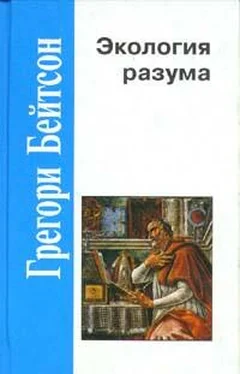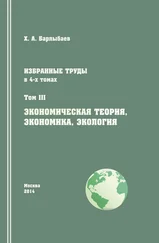Richardson L.F. Generalized Foreign Politics // Brit. J. of Psychology, Monograph Supplement XXIII, 1939.
Roheim G. The Riddle of the Sphinx. London, 1934.
Ruesch J., Bateson G. Communication: The Social Matrix of Psychiatry. N.Y., 1951.
Stevenson R.L. The Poor Thing // Novels and Tales of Robert Louis Stevenson. Vol. 20. N.Y., 1918.
Stroud J. Psychological Moment in Perception-Discussion // Cybernetics: Circular Causal and Feedback Mechanisms in Biological and Social Systems: Transactions of the Sixth Conference /Ed. by H.von Foerster et al. N.Y., 1949.
Thompson D.W. On Growth and Form. Vol. 2. Oxford, 1952.
Tinbergen N. Social Behavior in Animals with Special Reference to Vertebrates. London, 1953.
Vickers G. The Ecology of Ideas // Value Systems and Social Process. Basic Books, 1968.
von Domarus E. The Specific Laws of Logic in Schizophrenia // Language and Thought in Schizophrenia / Ed. by J.S.Kasanin. Berkeley, Calif., 1944.
von Neumann J., Morgenstern O. Theory of Games and Economic Behavior. Princeton, 1944.
Waddington C.H. Genetic Assimilation of an Acquired Character //Evolution. 1953. Vol. 7.
Waddington C.H. The Integration of Gene-Controlled Processes and Its Bearing on Evolution // Cariologia, Supplement. 1954. Waddington C.H. The Strategy of the Genes. London, 1957.
Weismann A. Essays upon Heredity (authorized translation) / Ed. by E.B.Poulton et al. Oxford, 1889.
Whitehead A.N., Russell B. Principia Mathematica: 3 v. 2nd ed. Cambridge, 1910-1913.
Whorp B.L Science and Linguistics // Technology Review. 1940. Vol. 44.
Wittgenstein L Tractatus Logico-Philosophicus. London, 1922.
Bateson G. The Science of Mind and Order. Статья написана в 1971 году. Публикуется впервые.
Bateson G. Metalogue: Why Do Things Get in a Muddle? Написано в 1948 году. Публикуется впервые.
Bateson G. Metalogue: Why Do Frenchmen? // A Review of General Semantics. 1953. Vol. X.
Bateson G. Metalogue: About Games and Being Serious // A Review of General Semantics. 1953. Vol. X.
Bateson G. Metalogue: Why Do Things Have Outlines? // A Review of General Semantics. 1953. Vol. XI.
Bateson G. Metalogue: Why A Swan? // Impulse. 1954.
Bateson G. Metalogue: What is an Instinct? // Approaches to Animal Communication / Ed. by Thomas A.Sebeok. 1969.
Уильям Блейк. "Европа, Пророчество", перевод В.Л.Топорова.
Так этот фрагмент выглядит в оригинале:
EUROPE A PROPHECY
Thought chang'd the Infinite to a Serpent, that which pitieth
To a devouring flame; and Man fled from its face and hid
In forests of night; then all the eternal forests were divided
Into earths, rolling in circles of Space, that like an ocean rush'd
And overwhelmed all except this finite wall of flesh.
Then was the Serpent temple form'd, image of Infinite
Shut up in finite revolutions; and Man became an Angel,
Heaven a mighty circle turning, God a tyrant crown'd.
Bateson G. Culture Contact and Schismogenesis // Man. 1935. Vol. 35.
Bateson G. Experiments in Thinking about Observed Ethnological Material // Philosophy of Science. 1941. Vol. 8(1).
Bateson G. Morale and National Character // Civilian Morale / Ed. by G.Watson. 1942.
noblesse oblige (франц.) - положение обязывает (прим. ред.).
Bateson G. Bali: The Value System of a Steady State // Social Structure: Studies Presented to A.R.Radcliffe-Brown / Ed. by M.Fortes. 1949.
Bateson G. Style, Grace and Information in Primitive Art // A Study on Primitive Art / Ed. by A.Forge. Oxford, 1971.
Перевод на русский язык оригинального названия этой статьи создает проблему из-за широты смыслового спектра, который имеет в английском языке слово "grace". Этот спектр простирается от таких эстетически окрашенных понятий, как "изящество", "грациозность", "миловидность", до таких, как "святость", "благословение" и "благодать", имеющих религиозный смысл.
Возможно, самым близким по смыслу является несколько устаревшее слово "благолепие", указывающее на соединение в одном объекте как высоких эстетических, так и духовных качеств. Слово это, однако, отмечено характерной русской тяжеловесностью.
Мы будем переводить "grace" иногда как "изящество", а иногда как "благодать" в зависимости от контекста, указывая при этом рядом оригинал в скобках. - Примеч. переводчика.
Речь идет о поэме Томаса Маколея (Thomas Babington Macaulay, 18001859) "Lays of ancient Rome, Horatius". Приведенный отрывок в оригинале выглядит так: Was none who would be foremost/ To lead such dire attack/ But those behind cried "Forward!"/ And those before cried "Back!" - Примеч. переводчика.
Bateson G. Social Planning and the Concept of Deutero-Learning // Relation to the Democratic Way of Life / Ed. by L. Brison, L. Finkelstein. N.Y., 1942.
Bateson G. A Theory of Play and Fantasy // АРА Psychiatric Research Reports. 1955. Vol. 2.
Выражение "self-pity" часто переводится на русский язык буквально как "жалость к себе". Нам такой вариант показался неадекватным контексту. В результате бесед с несколькими натуральными носителями англосаксонской ментальности мы приблизительно реконструировали смысл этого выражения как чего-то вроде "манипулятивного демонстративного страдальчества с элементами мазохистического эксгибиционизма". - Примеч. переводчика.
Bateson G. Epidemiology of a Schizophrenia. Отредактированная версия сообщения "Социальное окружение глазами девианта", сделанного на конференции "Эпидемиология психического здоровья" (Брайтон, Юта, май 1955 г.).
Bateson G., Jackson О., Haley J.,Weakland J.H. Toward a Theory of Schizophrenia // Behavorial Science, 1956. Vol. I (4).
Bateson G. The Group Dynamics of Schizophrenia // Chronic Schizophrenia: Explorations in Theory and Treatment / Ed. by L. Appleby, J.M.Scher, J.Cummings. Illinois, 1960.
Читать дальше







